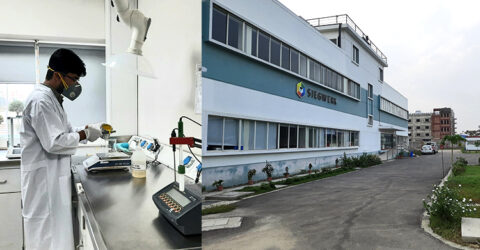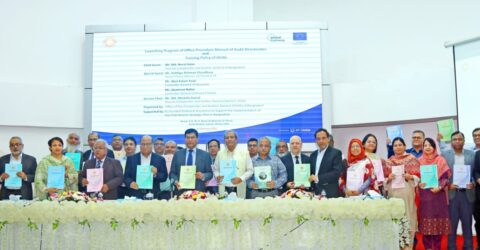
TBT Report
The workers of readymade garment sector are going to come under the insurance coverage. The International Labour Organization (ILO) has been discussing the issue with the government for a while. Relevant sources said that the government also has a positive attitude in this regard. Initially, it will be launched on experimental basis among 150,000 workers.
The ILO in association with the Deutsche Gesellschaft für Internationale Zusammenarbeit (GIZ) proposed two trial phases — the strengthening of capacities for existing short-term benefits and services and the testing of a risk pooling approach amongst employers for long-term benefits.
After the successful completion of this program for a period of three to five years, it will be introduced in all garment factories. Talks with the ILO and the concerned parties of the government’s labor ministry have revealed that an agreement is going to be reached with the government soon with the aim of launching it on a trial basis. The aim is to help them or their family members in the event of death or injury in an accident through a central fundraising and management. According to sources, the initial funding for the insurance, which will be launched under the name of Employment Injury Scheme (EII), will come from brands and buyers. The factory owners will have to take this responsibility after it is fully operational. However, the factory owners disagreed on the source of financing the insurance.
It is learned that apart from neighboring India, many of Bangladesh’s competitors have such insurance schemes in place to protect workers and their families killed or injured in accidents at work. These insurance policies are financed and supervised centrally, even though they have different names in each country. It is usually financed by the factory owner. In Bangladesh too, this issue came to the spotlight after accidents like Rana Plaza and Tazreen. Then it was seen that most of the workers are not covered by insurance. Again, there were various complications in getting the insurance claim money. According to the source, this initiative of ILO is also in favor of central financing and supervision. It has been calculated that to implement this insurance system, it will cost 0.019 percent of the export money or about two paise per 100 rupees.
At present, garment exporters in the country are paying 0.03 per cent of the export price to the central fund of the government. From this money the family of the slain worker was given BDT 3 lakh. On the other hand, according to the country’s labor law, a worker gets compensation of BDT 2 lakh for being killed in the workplace and BDT 2.5 lakh for being injured in the workplace. According to current realities and ILO standards, this means very little. A labor representative in Gazipur area remarked that if it is implemented, workers will receive a relatively good number of financial benefits.
Another labor leader from the same area told that the introduction of such insurance in Bangladesh has become important due to industrial accidents. In other countries, he said, the cost is usually borne by the owner. However, he urged the factory owners as well as the government and buyers to come forward.




